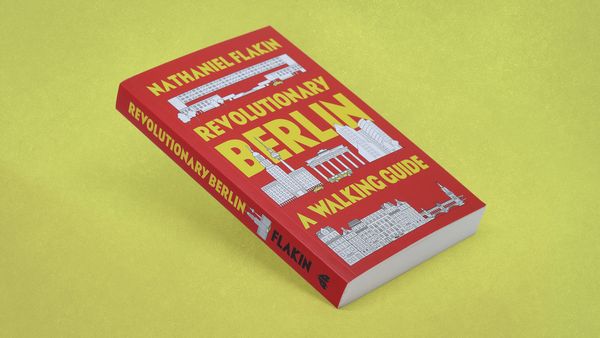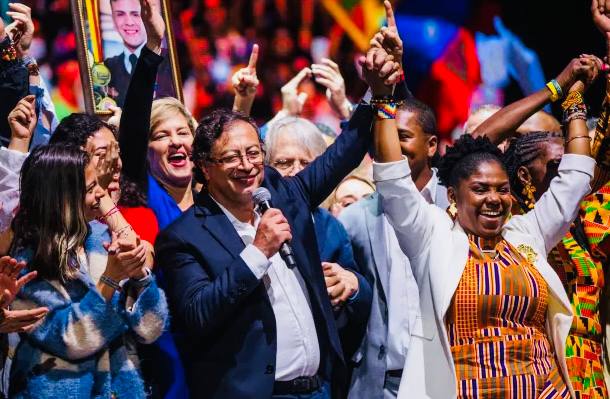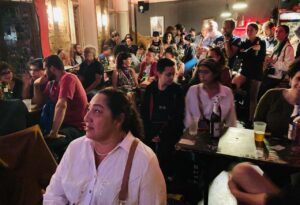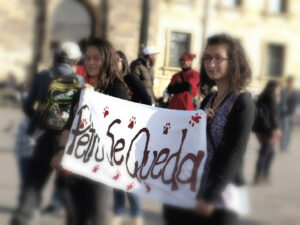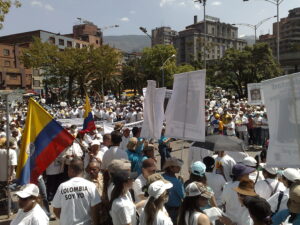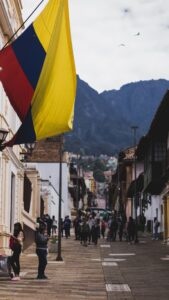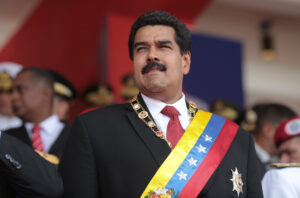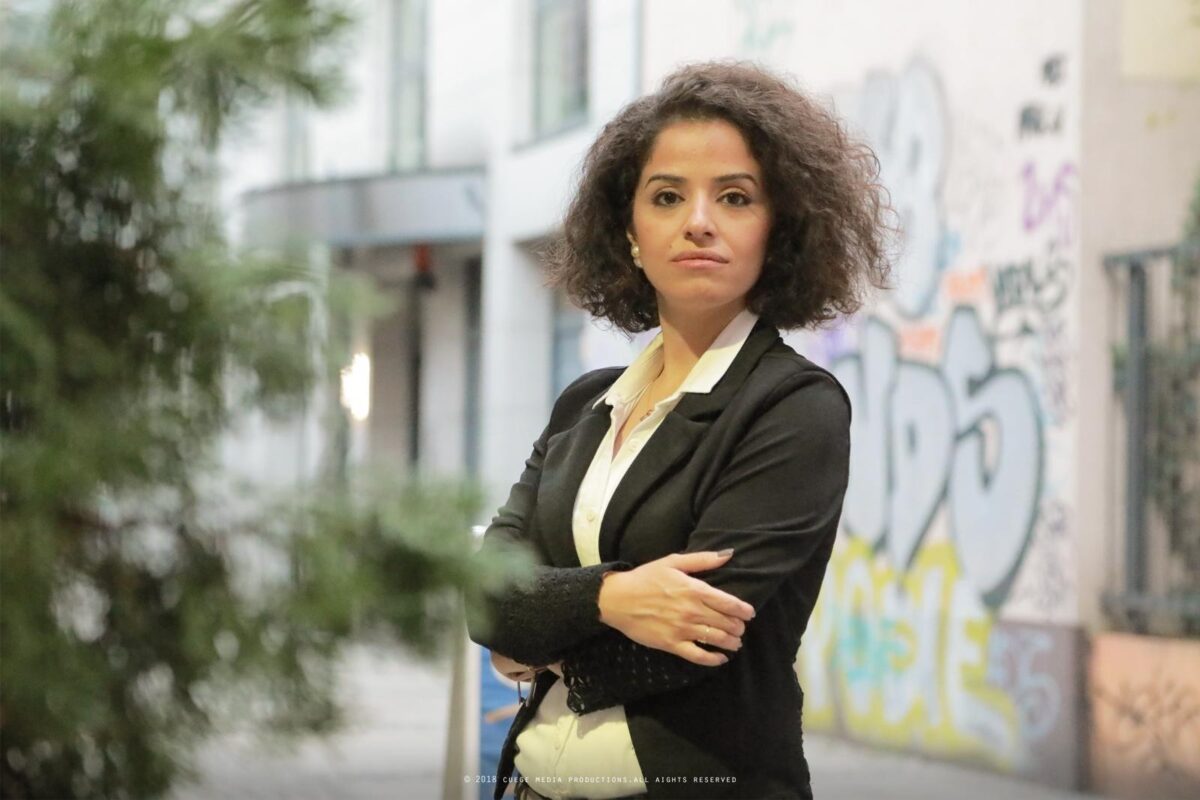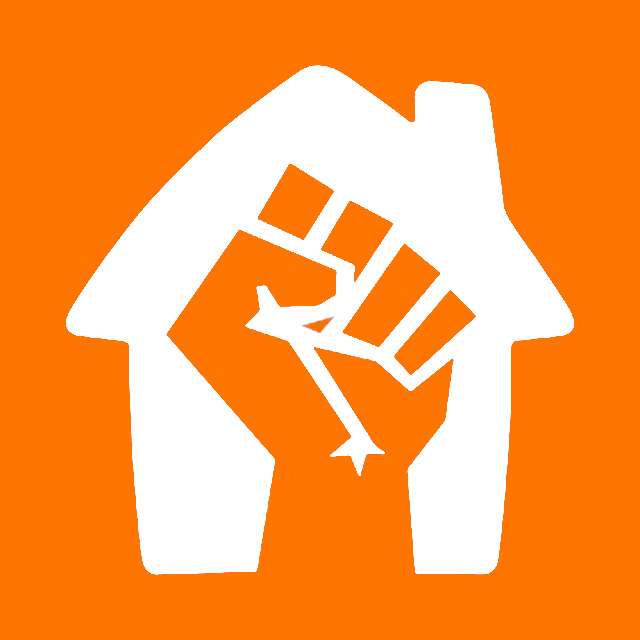Germany is barely 150 years old, and yet the country, especially Berlin, teems with history. If we just look at the twentieth century, we see war and revolution, rule by Fascists and Communists, the squatters’ movement and the one the brought down the Berlin wall. Above all, we see people organising from below – socialists against the First World War, workers against DDR repression, students against police murder, and migrants against racism and poverty.
In Revolutionary Berlin: A Walking Guide, historian and occasional tour guide Nathaniel Flakin, tells the capital’s history based on nine walking tours. Unlike some historians, Flakin does not attempt to hide his bias. He stands firmly on the side of the workers, the oppressed, and most importantly the people who take history into their own hands and try to change it.
Tour One: (Anti)Colonialism
In 1884, German Chancellor Otto von Bismarck invited representatives of 14 countries in the Global North to his palace. The Berlin Conference, as it is now known, carved up the continent of Africa among the colonial powers. No-one from Africa was invited to attend. Germany as a country was only 13 years old, and therefore had significantly fewer colonies than many other attendees of the conference. Between 1884 and the First World, Bismarck did his best to make up this deficit by colonising significant parts of Africa.
Tour One walks us through Germany’s colonial history: we visit the Reichskanzlei, site of the Berlin Conference, before viewing the legacies of German Colonialism. There is M-Straße, whose street name and U-Bahn station is unquestionably racist. After the Black Lives Matters demonstrations of 2020, the Berlin Senate promised to rename the street, but 2 years later, it remains.
There exists a history of resistance as well: the League Against Imperialism and the League for the Defence of the Negro Race, which were both part of the Communist International, and the DDR’s Cold War-fuelled support for Namibian independence. Even today, there is an ongoing campaign to rename streets of Wedding and other districts that have been named after colonialists. Germany’s support for colonial imperialism has always been contested.
Tours Two and Three: November Revolution and Rosa Luxemburg’s Berlin
In 1919, inspired by the Russian Revolution and the privations of war and poverty, German workers rose up. Tour Two starts at Potsdamer Platz, site of the first anti-war mobilisation on 1 May, 1916, the first step towards the German Revolution 2 years later.
We move to the sites of discussions within the then Marxist SPD, from the Reichstag, where most SPD MPs voted for war credits, to the offices of dissident MP Karl Liebknecht and the Spartakist Bund who opposed the war and would go on to form the German Communist Party. Then we visit the SPD headquarters from which the party, now in office, used the proto-Nazi Freikorps to put down the workers’ uprising.
Tour Three tells the life story of Rosa Luxemburg, the most important revolutionary leader alongside Liebknecht. Although Luxemburg has since been appropriated as an icon by reformists, lifestyle anarchists and Stalinists, she stood for a quite different type of politics in her lifetime – of socialism from below, of revolution, not reform.
We visit Luxemburg’s various homes, learn about her friendship and animosity with the Kautsky family, and the prison where she spent time for organising against the war. We learn about her participation in the November Revolution, and her flight from the Freikorps, which ended with her corpse being thrown into the Landwehrkanal. Her grave is now in the Gedenkstätte der Sozialisten (Memorial of the Socialists) in Lichtenberg.
Tour Four: Neukölln will stay Red
Two of the next tours tell the history of two of Berlin’s districts with the most radical reputation – Neukölln and Kreuzberg. Both areas have a high number of residents from a non-German background, and both have historically seen widespread support for both the Communist and Social Democratic parties.
The Neukölln tour uses the area to discuss wider Berlin, starting in the village of Rixdorf in 1871, and moving forward through time to show how the industrialisation of Berlin provoked the fight for workers’ voting rights – a fight which was ultimately won, not through reforms but by the revolutionary wave after the First World War.
We also hear about prominent socialist Neuköllners like Leo Jogiches, Ruth Fischer and Olga Benario, and witness the 1929 Blutmai, when the Social Democrat government banned all 1 May demonstrations, then deployed police to massacre anyone who defied this ban. We conclude by looking at the legacy of gentrification and the eviction of the Syndikat left-wing pub by Berlin’s Red-Red Senat.
Tour Five: 1968 in West Berlin
Compared to some other cities, Berlin had a quiet 1968. There wasn’t the Night of the Barricades and general strike of Paris or the mass uprising in Prague which was put down by Soviet tanks. Nonetheless, there was drama around the police murder of Benno Ohnesorg and at least one charismatic socialist leader Rudi Dutschke.
Ohnesorg was killed by police following a demonstration against the Shah of Persia on June 2nd 1967. He was beaten by police near the Staatsoper, then shot in the back of the head. No-one was convicted of his murder. Ohnesorg’s murder, the growing international movement against the Vietnam war, and a repressive SPD-CDU government radicalised a generation, resulting in the student SDS and a new extra-parliamentary opposition (APO).
Germany never mobilised as many people against the Vietnam war as other countries, but February 1968 saw 6,000 people attending the International Vietnam Congress in the TU. In April of that year, a week after the assassination of Dr. Martin Luther King Jr., SDS leader Dutschke was shot and seriously injured following a smear campaign against him by the right wing press.
Tour Six: Riots in Kreuzberg
Kreuzberg, like Neukölln, is an area with a high number of migrants and an undeserved reputation for being a “problem area”. It was also a peninsula almost entirely surrounded by the East, which was largely populated by Gastarbeiter, students and poor workers, and as such became the focus of radical West Berlin.
This tour visits centres of the radical movement, like the Rauch Haus, part of the former Bethanien hospital, which was occupied by squatters in 1971. The nearby New Yorck is still a centre for activists. We continue to the 1987 Lausitzer Platz uprising, after a street festival was suppressed with police water cannons and tear gas. This paved the way towards the Revolutionary 1 May Demonstration which still takes place every year.
But Kreuzberg is not just the home of the white radical Left. It saw Turkish workers organising in trade unions, refugees in Oranienplatz demanding freedom of movement within Germany, then occupying an abandoned school in Ohlaer Straße, and a migrant led tenants organisation. Kreuzberg has always been the heart of multicultural resistance.
Tours Seven to Nine: The East is Red, Queer Berlin and Berlinerinnen
The final three tours were, in the author’s words, newly created for this book. While the first six chapters are based on tours that he has already given, these are ideas for future tours, conceived during lockdown.
Tour Seven looks at government and resistance in the DDR: the 1953 workers’ uprising, Berthold Brecht’s Berliner Ensemble, and the punks and churches who opposed the DDR. We visit Bösebrücke, where confusion among border guards caused the border to be opened in 1989, the Stasi museum, and the area of No-Man’s land which was briefly squatted by the opposition. We end in Samaratinerstraße to remember Silvio Meier, murdered by Nazis in 1992.
Tour Eight explores Berlin’s rich Queer history: from the nineteenth century campaign against the ban on gay sex, through the pioneering research of Magnus Hirschfeld and Wilhelm Reich to the post-1968 gay and lesbian liberation movements in the West and in the East. We finish in Berlin’s gay district and see how, more than ever, gay Berlin and opportunities for victims of oppression are determined by class.
The final tour introduces some of the women of Berlin: from support for early strikes in Moabit and riots in Friedrichshain to pioneering socialists like the artist Kathe Kollwitz, the politician Clara Zetkin, and Black women like Audre Lorde, May Ayim and Angela Davis. We follow the ongoing fight for reproductive rights in West, East and united Berlin, where abortion is still formally illegal, and thousands of fundamentalist Christians still march every year.
Review and minor criticisms:
The tours in the book are perfectly structured. With the exception of one of the new tours, everything is rolled out chronologically, so we see that history is not just a jumble of random events, but that decisions made at one time affect what happens – and what can happen – later. As someone once said, we make history, but not under conditions of our own choosing.
This is particularly clear in the tours around the German Revolution: the revolution was neither bound to end in glorious victory nor doomed to failure. Its outcome depended on the bold moves and the mistakes, the premature actions and the dithering of actors on all sides – revolutionaries, reformists, and putative Nazis. Here we see what happened, but also what could have happened if the balance of forces had been slightly different.
In the Introduction, the author Nathaniel Flakin addresses the possible regional chauvinism of his tours: “Why is there a chapter on Red Neukölln and not Red Wedding? Because I live in the former, and the latter is really far away.” In a sense, fair enough, and the book can’t cover everything, but as someone who lives in Wedding (far away from Neukölln), I think that the area’s relative absence leads to a deficit, particularly around the history of the workers’ movement and the Blutmai.
In Wedding, the Blutmai was even more intense than in Neukölln. The SPD-controlled police shot 12,000 rounds of ammunition, much of it into the windows of residential buildings. At least 33 people were killed. Anyone wanting to understand why the German Communist Party took the suicidal decision to refuse to unite with the SPD against the Nazis can understand this better by looking at Wedding’s bloody history.
Wedding was also the centre of many workers’ actions at the beginning of the twentieth century and a chapter on this important history would complement the description of resistance by migrant workers in Kreuzberg. But of course, a book has to stop somewhere, and maybe there’ll be a sequel that gives Wedding’s proletarian history full justice.
Some snarky asides are unjustified. To say, for example, that the rosa luxemburg stiftung is “a reformist organisation” which presents Luxemburg as “a democrat and a pacifist who would have supported the modern capitalist régime” downplays the role that the organisation has played in supporting international revolutionary organisations.
All in all, however, this is a book which shows how ordinary people can make a difference. It’s written in an engaging style, full of anecdotes that would be irresponsible to reproduce here, so best buy the book to read them for yourself. .
